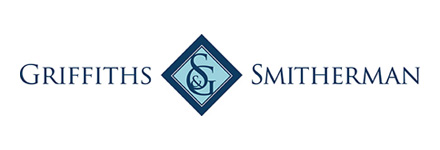Product Licensing Attorney West Palm Beach
A License is a right granted by one person (or company) to another giving permission to the other person to do something that he could not legally do without such permission. The person granting the right is called the “Licensor”, and the one receiving the right is the “Licensee”.
Licenses are used by intellectual property (“IP”) owners to control the use of their IP and protect their rights. This is an area where a West Palm Beach product licensing attorney helps to protect and safeguard your interests.
For instance, a license may be granted to a Licensee to “use” the Licensor’s sound recording in a television production, or it may grant the Licensee the right to “market” or “sell” the Licensor’s product in the marketplace. The Licensor charges a fee to the Licensee in exchange for granting the license. This is done usually by way of the Licensee paying a “royalty”, a one- time fee, or a lease payment(s) to the Licensor. The Licensor is the party who typically determines the royalty rate or other fee it wants to charge for granting the license.
A Licensing Agreement is the name of the legal contract between the Licensor and the Licensee which dictates the terms by which the Licensee is granted a license. It is important for all parties to understand the scope of their rights and to make sure that those rights are adequately spelled out in the Licensing Agreement so as to avoid a potential dispute between the parties later if the deal falls through. Therefore, a written licensing agreement between the parties is the best practice and is an absolute must in business.
What terms should be included in a Licensing Agreement?
Each deal is different, and therefore, a Licensing Agreement should be tailored to the parties’ specific needs and expectations. However, here are some terms that should be included in a Licensing Agreement:
- Term (length of the agreement)
- Scope of the license (exclusive vs. nonexclusive, retention of ownership rights by Licensor, limited use of license, etc.)
- Termination of the agreement for breach
- Payment type and payment terms for grant of license (one-time fee, recurring royalties, how often paid, etc.)
- Rights to modify or improve the product
- Right to an accounting of sales
- Territory limiting where the rights are granted
- Prohibited uses (can only be used for legal activities, etc.)
- Where to send notices to the other party
- Force Majeure
- Transfer and sublicense rights (can Licensor subcontract its rights out to others?)
- Rights to access or use source code
- Representations/Warranties
- Limitations on the Licensor’s liability for misuse by Licensee
- Nondisclosure of confidential information and trade secret
- Indemnification of the parties
Laws regarding intellectual property rights are extremely layered and complex. Countless legal issues will most certainly show themselves in the negotiation and drafting process. It is a much more cost effective approach for the parties to draft a fair and enforceable License Agreement up front by having all relevant terms succinctly defined and drafted than it is to fix the problem through litigation if the deal falls apart in the future. The potential aggravation, loss of revenue, disruption in business, and loss of goodwill can be averted by having a qualified lawyer help in the negotiation and drafting process.
Seek legal advice if you’re unclear on any aspect of the licensing agreement. The help you get now can save you money later, or even make you some if you can set yourself up for success with a favorable licensing agreement. And if you’re put off by the idea of paying royalties, keep in mind that both parties stand to benefit. For the licensor, the advantage is clear: By granting you a license, it has eliminated the manufacturing and marketing costs associated with launching a brand-new product–and the royalties translate directly into profits. And you’ve added value to your product that will translate into sales.
Read more: http://www.entrepreneur.com/article/174014#ixzz2ap9SyBk0
Attorney Spotlight
Bar Admission
- The Florida Bar
- The Ohio Bar (currently inactive)
Court Admissions
- All Florida State Courts
- J.D., The Ohio State University, 1994
- B.S., The Ohio State University, 1991
- Business Law
- Marketing and Advertising Law
- Direct Response Marketing
- Trademark and Copyright
- Contracts
- Entertainment Law
- Business Litigation
- ???
- The Business Law Section of the Florida Bar
- The Entertainment Law Section of the Florida Bar
- Delta Theta Phi Law Fraternity-Alumni member
- Alpha Gamma Delta-Alumni member
Stacey L Griffiths, Esq.
Founding partner of Griffiths & Smitherman, P.L. concentrating in the area of Business Law, Marketing and Advertising Law, Trademark and Copyright, Entertainment Law, and Business Litigation.


